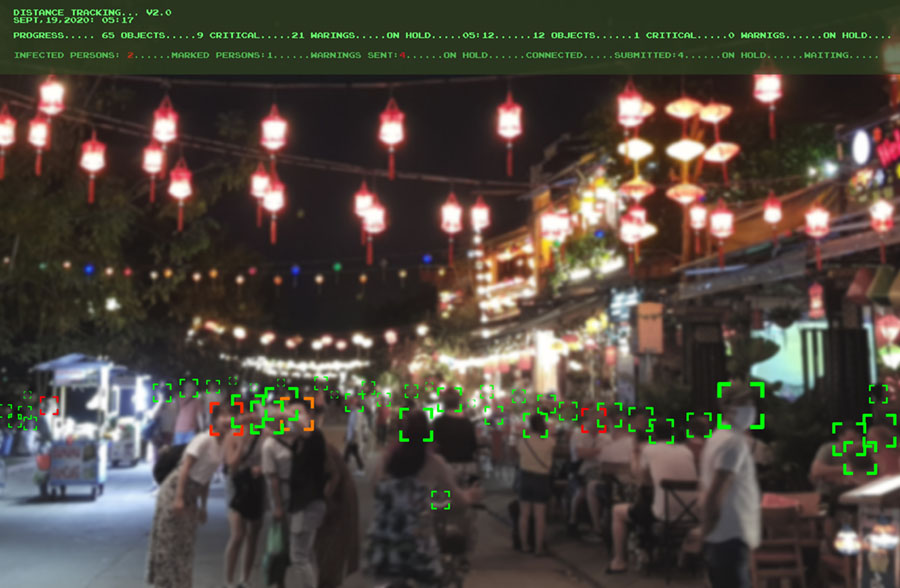
Confidentiality and FISA
Confidentiality and FISA Regulations Mean That U.S. Citizens no Longer Have a Right to Privacy. Telecommunications Companies Must Produce Contact Information of Subscribers.
Confidentiality and FISA cannot coexist. All privacy has been sacrificed on the altar of this unconstitutional legislation.
FISA is an acronym for Foreign Intelligence Surveillance Act. Without founded suspicion, our government has a free hand to spy on us.
The first version of the Foreign Intelligence Surveillance Act of 1978 was pretty mild in comparison with what now stands in the statute books, even though it had a rather unfortunate genesis.
The original FISA was created by legislators in order to try and legitimize the kind of activities that President Richard Nixon got up to during his presidency.
Nixon spied on his political opponents and perceived enemies using wiretaps and other surveillance methods. The first FISA made this possible but with “Congress and judicial oversight”.
Although the legislation was never much tested in a court of law, it had its unconstitutional aspects, but threats to personal confidentiality and FISA were never linked in the public mind until after the events of 9/11, 2001.
There were three main assaults on the FISA that made that legislation the monster it is today.
First, in 2001, the Act was amended by the U.S.A. Patriot Act, but that involved a fairly minor change with respect to defining a foreign enemy.
Essentially, the FISA had recognized agents of foreign governments as enemies, so the change merely broadened this understanding to include individual terrorists acting on behalf of terrorist groups.
Reports in 2005 involving the National Security Agency acting on instructions of the Bush administration and carrying out warrantless domestic wiretapping had the writers of legislation sharpening their pencils once again.
The result this time was a horrendous piece of law called the Protect America Act of 2007. It was signed into law with an expiration date early in 2008.
This temporary piece of legislation was put there to test the waters as to how the American people might respond to major attacks upon their liberty with the destruction of personal communications confidentiality, and FISA was altered subsequently to include most of the provisions in the Protect America Act.
The legislation as it stood at the end of 2008 was called the FISA Amendments Act and it is one of the most draconian and unconstitutional laws ever to have been imposed on the American people.
The important thing to understand about the evolution of confidentiality and FISA is that it has consistently sought to protect the perpetrators and punish the innocent, which is as good a definition of a tyrannical law as you will ever find.
The introduction of the original Act and its subsequent amendments make it quite clear that the U.S. government is not in favor of any citizen having the luxury of confidentiality and FISA makes that official.
Any bureaucrat can intercept any communication of any U.S. citizen merely on the suspicion that he or she may be communicating with someone overseas.
It doesn’t matter if the suspicions have grounds or not, or who the person may be speaking to.
Mere suspicion is sufficient and there is no court involved and no recourse to be had.
How the Telecom Firms are Protected by FISA
In terms of the original FISA Act, you could sue your telephone or cell phone company if they divulged anything about your communications activities.
In terms of the latest amendments no such recourse remains. In fact, everything works in favor of the perpetrators here.
The government has the right to all data that the telecommunication companies provide.
To add insult to injury, this amendment applies retrospectively as well as prospectively, leaving the American people in even more of an invidious position regarding confidentiality and FISA.
Resistance to the FISA Amendments
Considering the far-reaching implications of this Act which allow unfettered electronic surveillance of innocent people, you might have thought there would have been a civil uprising in response to the assault on confidentiality and FISA.
This did not happen. The protesting was left to small groups of bloggers, minor street protests, and maverick die-hard congressmen such as House Representative Ron Paul and Senators Russ Feingold and Chris Dodd.
Congress Passed the Act with Plenty of Votes
It wasn’t even a close-run thing. The House of Representatives passed it by a 293 to 129 vote.
Senator Dodd put forward an amendment calling for the striking of Title II (telecoms immunity provisions) but this was rejected in the Senate by 66 to 32.
The bill was then passed 69 to 28. Bush signed the bill into law the following day.

 My First Amazing Ayahuasca Experience
My First Amazing Ayahuasca Experience  Pine Needle Tea
Pine Needle Tea  The REAL Controllers of Humanity: The Papal Bloodlines
The REAL Controllers of Humanity: The Papal Bloodlines  Is it Global Warming or Cooling?
Is it Global Warming or Cooling?  Gun Rights and Obama Examined
Gun Rights and Obama Examined